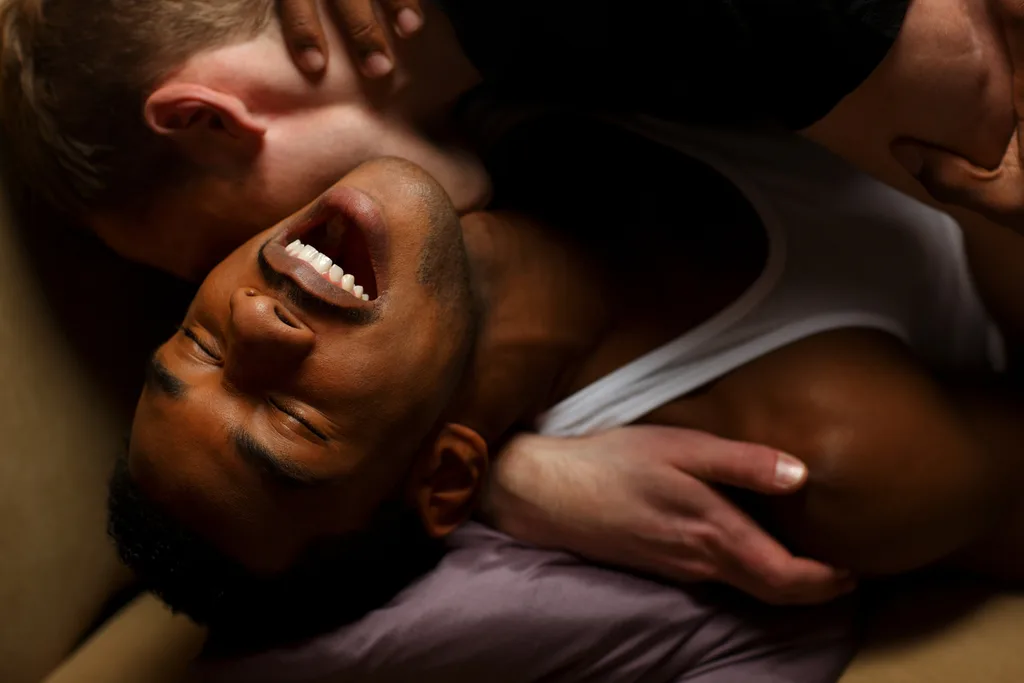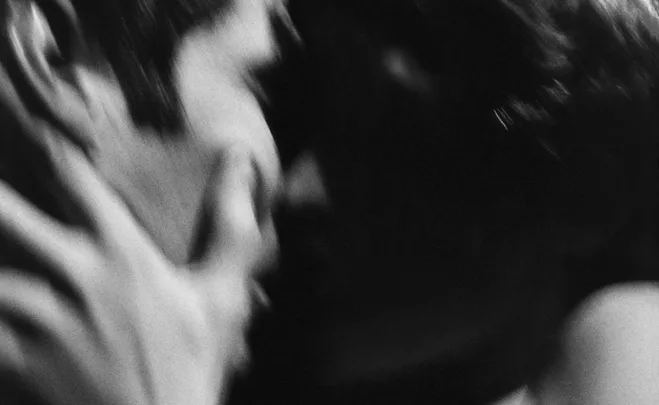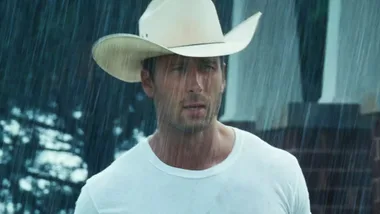It’s a regular Tuesday morning in the late 1990s and Lucy* is on her way to her office job in the CBD. She’s wearing yesterday’s clothes and nursing a hangover, while trying to work out where she is exactly. She has no idea. Memories of the night before come back to her in fragments, like shards of glass.
She remembers going for a casual Monday night drink after work, the man she met at the bar and the desperate need she felt to be with him. She doesn’t remember leaving the bar, how she got to the man’s apartment, if they used protection when they had sex, or even his name. In the harsh light of day, she has to squint to try to remember what his face looks like.
Lucy has been here before – not on this very street trying to get her bearings and find a taxi – but standing in the dark shadow of a drunken night and random hook-up. The worst part is, she knows she will probably do it all again that night. Come the afternoon, the screams of her hangover will be replaced with something much worse: silence. The empty void in her heart will need filling and she’ll go to desperate measures to do so. Before she finishes work for the day, she might even meet the man on the top floor of her office building and have sex with him right then and there.
Later, she might hook up with one of the five men she has on rotation or pick up another stranger at a pub after two bottles of white wine. This is an average day in the life of an undiagnosed sex addict – an endless cycle of emptiness, desperation, shame and longing.
In 2019, for the very first time in its history, the World Health Organization added “compulsive sexual behaviour disorder” to the International Classification of Diseases (ICD-11) handbook, recognising it as an official condition, alongside alcoholism, drug addiction and post traumatic stress disorder (PTSD).
“Sex addiction is defined as repetitive and compulsive sexual behaviour, and the persistent failure to control impulses and urges,” explains Jane O’Keeffe, a psychologist and consultant at South Pacific Private in Sydney, one of Australia’s leading treatment centres for addiction.

It was this feeling of powerlessness that overwhelmed Lucy and led to her darkest days.
“I couldn’t stop. I was mistaking the rush of sex with love, and I was chasing that feeling. I knew what I was doing was wrong, but I was so engrossed in the attention and desperate to fill the void in my heart,” admits Lucy, now 47, who doesn’t know how many people she’s slept with, but estimates that the number is higher than 500.
“At the height of my addiction, I put myself in danger. I was drinking two bottles of wine a day, doing drugs, being promiscuous and opening myself up to sexually transmitted diseases and assault.”
Lucy certainly isn’t alone. According to South Pacific Private, the rates of female patients with sex addiction (as either their principal or secondary diagnosis) increased by 14.3 per cent from 2019 to 2020. Sex addition often goes hand in hand with other addictions, including drugs, alcohol, love and pornography.
When Covid-19 lockdowns were first introduced in 2020, it was women who turned to porn in droves, with Pornhub reporting that female traffic increased more than male traffic at the time.

While not all sex addicts are addicted to porn, sex addiction is almost always linked to emotional abuse. In a ground-breaking study by Dr Patrick Carnes back in 1998, 97 per cent of sex addicts surveyed reported they had been emotionally abused as a child, 81 per cent had been sexually abused and 77 per cent came from rigid, authoritarian households.
The link between trauma and sex addiction is well documented. Lucy can trace the origins of her addiction back to a traumatic incident that happened when she was two. That incident combined with the trauma of being molested by a neighbour as a child and the feeling of being betrayed by her mother who failed to protect her, created a perfect storm of sex addiction, which left more destruction in its wake.
For years, Lucy battled this storm on her own, too ashamed, scared and confused to ask for help. It wasn’t until she met her now-husband and had her first child that she was able to seek help, in 2015.
Lucy initially checked into a rehab program at South Pacific Private to deal with complex PTSD, and the drug and alcohol addiction associated with that, but during her treatment the extent of her addiction to sex and love was revealed.
“Becoming aware of my addiction and then being able to educate myself and start to understand it was a huge moment,” says Lucy.
Naming an addiction is powerful. So, too, is being able to say that name out loud. There’s a reason Alcoholics Anonymous meetings start with members introducing themselves and declaring that they’re alcoholics. While we’ve come a long way in understanding alcoholism as the disease it is, there is still a sense of shame and scorn reserved for people with a sex addiction – especially when those people are women.
“Society loves to use words like slut and whore to describe women who have a lot of sex, though it’s often expected of men,” says Erica Garza, a writer, mother and recovering sex addict who wrote the 2018 book Getting Off: One Woman’s Journey Through Sex and Porn Addiction.
“Shame was the driving force of my addiction. For so long, I felt like I was the only person acting out the way I did. You don’t hear many stories about women who are addicted to sex or porn, even though I now know there are so many of us.”

Unlike Lucy and many other sex addicts, Erica’s addiction wasn’t grounded in sexual trauma or childhood abuse.
“I had a mostly happy, stable and safe childhood. My trauma was ordinary. I just didn’t learn the necessary tools to cope with painful emotions in a healthy way and leaned on sexual pleasure as an escape route,” says Erica. “Confronting your trauma, as minuscule or ordinary as it may seem in comparison to others, is such an important part of recovery. Sex addiction can happen to anyone with any background.”
It’s true, compulsive sexual behaviour disorder can affect anyone, regardless of gender, age, career, social standing, culture, religion or ethnic background. And yet it’s so often spoken about in terms of men. When you close your eyes and imagine a “sex addict”, you might picture tabloid headlines and paparazzi photos of golfer Tiger Woods or actors Russell Brand and David Duchovny. You likely wouldn’t imagine Lucy, a married mother of two, who lives on the South Coast of New South Wales, is training a young dog and works as an educator in the hospitality industry.
In fact, it took Lucy a long time to see a sex addict in herself when she looked in the mirror. “I used to think sex addiction was just an excuse for husbands used to cheat on their wives,” she admits. “But that’s not the case.”
“More education is needed to break the stigma and shame associated with sex addiction,” adds O’Keeffe, who has facilitated the women’s day program at South Pacific Private, where sex addicts are taught about the psychoeducation of trauma and addiction, communication skills, boundary setting, adaptive strategies, emotional regulation and how to feel healthy feelings and have healthy relationships.
“In the program, women support each other and learn from each other. They hold each other accountable without shaming one another.”
It’s in the safe space of this rehabilitation centre where Lucy found healing – eventually. It took her two stays to truly unpack her issues and commit to recovery.
“When I had my son in 2013 and again after I had my daughter in 2015, I went through postnatal depression and I couldn’t cope,” she recalls.
“I needed help. Having my own children opened the floodgates to the childhood sexual trauma I’d been pushing down all my life. It was confronting, but when I sat down and pieced it all together, it was so obvious I was dealing with sex addiction. The first step was calling it what it was.”

With sex addiction, total abstinence isn’t a viable long-term solution. Sex is a normal and important part of life when it is healthy, consensual and not compulsive. O’Keeffe usually recommends a three-month period of sexual absence to give clients a chance to deal with their underlying issues before they re-introduce healthy sex into their lives.
In the early days of her recovery, Erica took a break from watching porn as she settled into a committed monogamous relationship. Since then, she’s been able to focus less on abstinence and more on balance.
“Seeing a therapist and attending 12-step meetings [Sex and Love Addicts Anonymous] were important in healing,” she says. “Reaching out and meeting other people going through the same thing was helpful.
I met men and women who accepted me and supported me, regardless of what I’d done in the past or how awful I thought I was.”
It’s this sense of acceptance that Erica wants to pass on to the next generation. “I have a six-year-old daughter. I want to raise her to feel empowered in her body and free from shame,” she says.
“Sharing my story and being vulnerable helped me feel less alone. When you take the chance to talk about something messy and painful, other people feel permitted to talk about those things too.”
There isn’t a one-size-fits-all approach to dealing with addiction. Recovery isn’t linear: there are ups and downs, relapses and regrets, tests and triumphs. Even now, five years into her recovery, Lucy wouldn’t say she’s in control of her addiction. She prefers to use an analogy: she’s in the driver’s seat of her life, but her addiction is parked to the side, idling nearby, waiting to rev her engine.
Unlike the tongue-in-cheek headline of this article, Lucy’s story does in fact have a happy ending.
“It feels like the clouds have parted and the sun is shining on me,” she says. In the past five years, she has completed a bachelor and a master’s degree, been promoted, spent quality time with her kids and celebrated her 12th anniversary with her husband.
“I feel a lot more grounded in myself,” she says. “I still have days when I struggle, but I can sleep easy at night knowing I’m not going to wake up with regrets and shame. Now, I wake up and feel clearer than I ever have before.”
How to help
Worried about a loved one or considering treatment for the first time? Call South Pacific Private on 1800 063 332 or visit slaa.org.au to inquire about attending a Sex & Love Addicts Anonymous meeting.
*Name has been changed.
This article originally appeared in the August issue of marie claire Australia.










